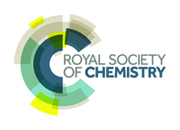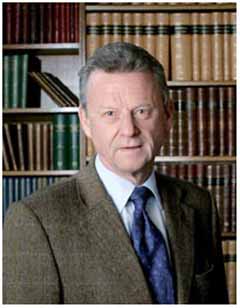 Sir Simon Campbell CBE FRS FMedSci, Scientific Consultant, United Kingdom
Sir Simon Campbell CBE FRS FMedSci, Scientific Consultant, United Kingdom
Simon Campbell is a synthetic organic chemist who received his PhD from the University of Birmingham in 1965 followed by postdoctoral appointments in Chile and Stanford. From 1969 to 1972, he was Visiting Professor at the Universidade do Sao Paulo in Brazil, and then returned to the UK to join Pfizer Central Research in Sandwich. Sir Simon retired from Pfizer in 1998 as Senior Vice President for Worldwide Discovery and Medicinals R&D Europe. He has co-authored over 120 publications and patents, and was a key member of the research teams that discovered CarduraTM, NorvascTM, and Viagra.TM
Dr Campbell’s scientific contributions have been recognised by the RSC Award for Medicinal Chemistry (1989), the Herschberg Award from the American Chemical Society (1997), the Industrial Research Institute (US) Achievement Award (1997), the CIA Individual Achievement Award (2006), Galen Medal (2007), Sir James Black Award for Drug Discovery (2012) and was given a Lifetime Achievement Award from the BMC Sector of the RSC. He was elected FRS (1999), FMedSci (2002) and was appointed CBE in 2006 for “Services to Science” followed by a knighthood in 2015 for “Services to Chemistry”. Sir Simon was named at number 31 in the Times Eureka list of 100 top UK scientists for 2010, and was included in the Science Council list of the UK’s 100 practising scientists in 2014
Currently, Dr. Campbell is a member of the SABs of Astex (Cambridge), Bionomics (Adelaide) Calibr (San Diego) CTx (Melbourne), H3-D (Cape Town), MRCT (London) and the TB Alliance (Seattle). He has acted as consultant to Abingworth Management, CRUK, DNDi, MMV, Novo Seeds, Sofinnova and the Wellcome Trust, and also works with CNPq/FAPESP in Brazil. He is a past President of the RSC and has served on the RS Council and Finance and Industry Committees, and was the first chair of the Expert Scientific Advisory Committee for the Medicines for Malaria Venture
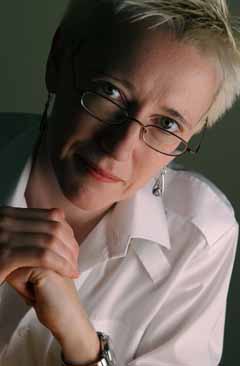 Nessa Carey, PraxisUnico, United Kingdom
Nessa Carey, PraxisUnico, United Kingdom
Nessa Carey PhD is a biologist who worked for 13 years in senior roles in the biotech and pharma sectors, usually in emerging target classes. She has a wealth of experience in the complex decision making that underlies target selection, and also the cultural problems that bedevil discussions between academics, biotech companies and big pharma who all mean very different things by the phrase “target validation”. Nessa is a former academic at Imperial College where she now holds a Visiting Chair. She’s a highly experience teacher and trainer, and the author of two popular science books – The Epigenetics Revolution and Junk DNA: A Journey Through the Dark Matter of the Genome. Nessa also edited Epigenetics for Drug Discovery, published by the Royal Society of Chemistry in 2015.
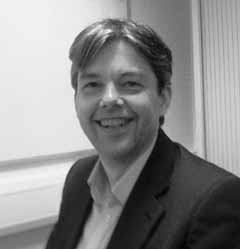 Andrew Cook, AstraZeneca, United Kingdom
Andrew Cook, AstraZeneca, United Kingdom
Andy has been a member of the AstraZeneca IP team since 2010, and is responsible for a number of late-stage and on-market products. Prior to that, he worked as a Team Leader in Medicinal Chemistry and as an LI Project Leader and LO Deputy Project Leader at AstraZeneca Charnwood. In an earlier phase of his life, Andy studied Law at the University of Oxford before spending seven years as an employment lawyer for a UK law firm. He obtained his first degree in Chemistry at the Open University and his PhD at the University of Leeds.
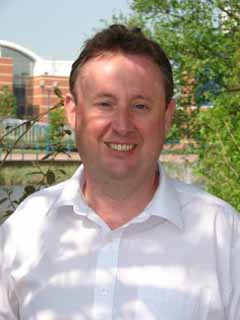 Andy Davis, AstraZeneca, United Kingdom
Andy Davis, AstraZeneca, United Kingdom
Andy gained his first degree in Chemistry from Imperial College of Science and Technology, University of London in 1982 and his PhD at University of Huddersfield with Professor MI Page, studying kinetics and mechanisms of rearrangements of penicillins. He joined Fisons in 1988 as a physical organic chemist, and subsequently became Associate Director of Physical Chemistry at AstraZeneca R&D Charnwood. Through his work on the application of physical chemistry to drug design he was honoured to be appointed an AstraZeneca Senior Principal Scientist. He has also been awarded two AstraZeneca global Scientific and Technical Achievement awards for work on a global ADMET prediction program called C-Lab, and contributions to the development of a high throughput hERG assay. In 2008 he became chair of the Charnwood Local Projects Forum, and member of the Respiratory and Inflammatory research area Portfolio Team. In 2011 he moved to Sweden, and a new challenge as a project leader in the recently established Respiratory Inflammation and Autoimmunity Innovative Medicines unit at AstraZeneca R&D Mölndal. Through this time he has maintained his involvement in QSAR method development. He has been a tutor and lecturer on the Royal Society of Chemistry Medicinal Chemistry Summer School since 1990, and scientific course organiser since 2005. He has published many highly cited articles in leading peer-reviewed journals, covering his key interests of compound quality, the energetics of drug-receptor interactions, QSAR methods and the co-operative application of physical organic and computational chemistry to drug discovery. Most recently, with Prof Simon Ward from University Sussex, he has edited the Royal Society of Chemistry Handbook of Medicinal Chemistry – Principles and Practice, together with its companion suite of applications for iPad, The RSC Medicinal Chemistry Toolkit.
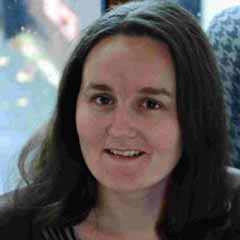 Cheryl Doherty, Pfizer Ltd, United Kingdom
Cheryl Doherty, Pfizer Ltd, United Kingdom
I received an MChem from the University of Bath and obtained my PhD under the supervision of Professor Paul Raithby and Professor Matthew Davidson, also at Bath. I began my research career working as a crystallographer for Pfizer in Sandwich. I have now been at Pfizer for 10 years and am currently working in Pharmaceutical Sciences. I mostly work on developing dosage forms for drug candidates. This includes using molecular modelling, obtaining crystallographic data and statistical analyses of structural information to design a program of action and guide dosage form development for these projects as well as guiding the experimental screening, characterisation and analysis of these candidates. This can be on candidates from early research (before first in human studies) through to Phase III clinical trial candidates. I am Chair of the British Crystallographic Association Industrial Group, a chartered member of the Royal Society of Chemistry and sit on the Diamond Light Source (Synchrotron) Industrial Science Committee.
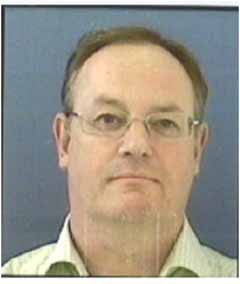 Colin Edge, GlaxoSmithKline plc, United Kingdom
Colin Edge, GlaxoSmithKline plc, United Kingdom
Computational chemist with more than thirty years’ industrial experience in lead-based and structure-based drug discovery. Expert in the application of computational techniques to drug design. Good communicator of concepts and ideas. Used to working with small teams facing many demands from international customers. Experience of participating in and leading therapeutic projects from target selection through to Phase II and of supporting manufacturing processes.
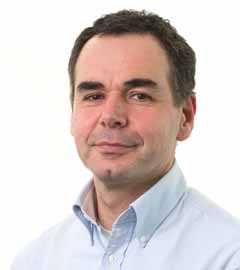 David Fox, Vulpine Science & Learning, United Kingdom
David Fox, Vulpine Science & Learning, United Kingdom
Following a PhD and post doc in chemistry, David joined Pfizer, Sandwich in 1993 as a medicinal chemistry team leader. During his career at Pfizer, he headed-up chemistry sections working in a range of therapeutic areas including Anti-Virals and Cardiovascular. He has been directly involved in the identification of eleven development candidates from eight mechanistic classes, including four Phase 2 compounds and is co-author of over 40 publications and reviews and a named inventor on 16 patents.
Between 2011-2016, David took-up a part-time role with the RSC as Industry Associate. David has also set-up a consultancy company Vulpine Science and Learning and he is Visiting Professor at the Universities of Reading and Leeds.
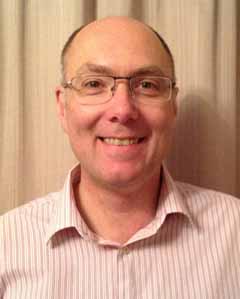 Darren Green, GlaxoSmithKline plc, United Kingdom
Darren Green, GlaxoSmithKline plc, United Kingdom
Darren Green is Director of Computational Chemistry, GlaxoSmithKline. Based at Stevenage, his group specialises in the application of molecular design, data analysis, predictive modelling and chemoinformatics methods to drug discovery. Darren also leads the Compound Collection Enhancement strategy for GSK.
Darren has a PhD in Theoretical Chemistry from the University of Manchester. He is a Fellow of the Royal Society of Chemistry and a member of the UK government’s e-Infrastructure Leadership Council.
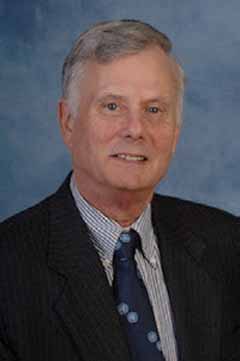 Robert Ings, RMI Pharmacokinetics, United States
Robert Ings, RMI Pharmacokinetics, United States
Bob graduated in biochemistry from the University of Birmingham, UK and then obtained his Ph.D. in conjunction with industry and the London School of Hygiene & Tropical Medicine. Bob has extensive global experience in Drug Metabolism & Pharmacokinetics,initially working with several European pharmaceutical companies in the UK, transferring to Milan, Italy whilst working with Pharmacia & Upjohn where he directed both discovery and development DMPK efforts for the company. He was then given responsibility for Preclinical Sciences at Pharmacia & Upjohn, Stockholm, Sweden and following the merger of Pharmacia & Upjohn with Searle/Monsanto, Bob moved to the US to head the Pharmacokinetic and Metabolism functions in Skokie and St Louis. During this period Bob contributed to many successful global registrations including Zyvox, Covert, Ellence, Aromasin, Somavert, Inspra and Sutent. From there, and after the acquisition by Pfizer, Bob transferred to Amgen, CA before joining Daiichi Medical Research, NJ and then Roche Palo Alto, CA as Vice President, DMPK. In 2007, Bob founded and became president of a consulting company, RMI-Pharmacokinetics, LLC now based in Carlsbad, CA with clients throughout the US as well as Canada, Europe and Asia.
Bob has been and still is very active in the scientific community, including past Chairperson of the DMDG (UK), and joint founder of the societies, PK-UK and DMDG (Italy). He is the author of over 80 publications, including several book chapters on pharmacokinetics and a recent review on microdosing. In addition, he has given over 120 presentations on pharmacokinetics and metabolism at major scientific meetings throughout the world and been responsible for developing numerous training courses.
Mike Kelly, GlaxoSmithKline plc, United Kingdom
Mike is Senior Director for Nonclinical Safety at GSK with responsibility for Immuno-Inflammation, Discovery Partnerships with Academia and the Academic Discovery Performance Unit. He has worked at CRO and small biotech as well as in industrial toxicology.
Mike has supported the development of small molecules, biopharmaceuticals and oligonucleotides at all stages of development including MAA and NDA.
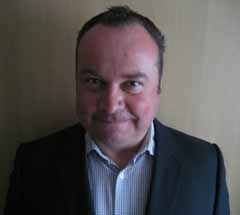 Tim Luker, Eli Lilly, United Kingdom
Tim Luker, Eli Lilly, United Kingdom
Tim Luker leads Lilly's external advancing innovation process in Europe within Global Corporate Business Development. In this role Tim interacts with external VC funds targeting transformational early stage research across multiple therapy areas and also supports general due diligence and search and evaluation initiatives.
Tim is an experienced drug hunter with 17 years’ experience and is an inventor / author on >60 patent applications and publications. Prior to Lilly he co-founded a successful spin out biotech (Polleo Pharma); and performed senior roles at Shire pharmaceuticals (Director Exploratory projects, 2011-2014) and AstraZeneca (several R&D and medicinal chemistry roles, 1999-2011), where he lead multiple drug discovery projects through to candidate molecules as well as providing input into early development projects and managed medicinal & computational chemistry teams.
Tim has a PhD (1995) in chemistry from the University of Southampton, carried out post-doctoral research at Universiteit Van Amsterdam (1996-1999) and is also a Prince2 qualified project manager.
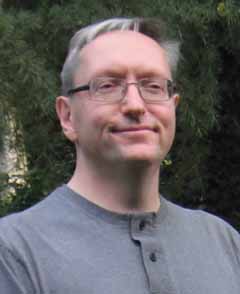 Andy Merritt, MRC Technology, United Kingdom
Andy Merritt, MRC Technology, United Kingdom
Andy Merritt is Associate Director, Chemistry at the MRC Technology's Centre for Therapeutics Discovery (CTD). Collaborating with academics, the CTD prosecutes innovative drug discovery programmes; diversity, targeted and in silico generated screening approaches are all used to identify medicinal chemistry leads for further optimisation.
Before 2009 Andy was a Director of Discovery Medicinal Chemistry at GlaxoSmithKline, responsible for early lead discovery from screening campaigns, for outsource support for lead discovery chemistry and supply of tool compounds for target validation. Prior to 2001, as part of the GlaxoWellcome organisation he led interdisciplinary teams focusing on the development of new chemical technologies for lead discovery and optimisation. Andy joined the former Glaxo organization as a senior medicinal chemist in 1988 following postdoctoral studies in the USA.
Andy currently sits on the editorial board of Chemistry World and regularly lectures on drug discovery at UK universities.
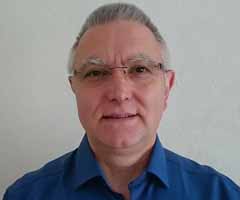 Tony Mete, Medsyndesign Ltd, United Kingdom
Tony Mete, Medsyndesign Ltd, United Kingdom
After training as a synthetic organic chemist at Oxford (BA), City (PhD) and Sussex (Post-Doc) universities I worked as a medicinal chemist in R&D in a range of industries for over 25 years, in scientific & project leadership roles and as a team manager. The companies were Glaxo, Shell, AstraZeneca and Medimmune in the pharma, biotech and crop protection sectors. My work has led to over 60 publications, patents and conference presentations. The therapy areas I have worked in have covered antimicrobial, antiviral, inflammation & respiratory (COPD, Asthma, RA, OA), inhaled and oral drugs and small peptides for metabolic diseases. The biological targets have included both receptors and enzymes such as GPCR & chemokine antagonists and lipase & protease inhibitors. The medicinal chemistry campaigns that I have led (in both LI and LO) have resulted in some 10 candidate drugs being identified for clinical development (several in Phase II). Since 2012 I have worked as an independent drug discovery consultant through my own company (Medsyndesign Ltd) and I have consulted for a range of small companies and universities in several disease areas (CV, oncology and injectables).
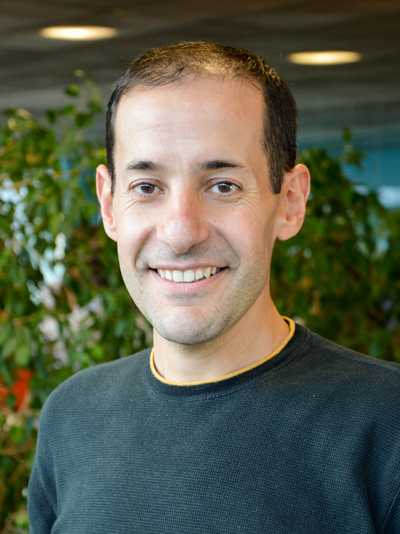 Hasane Ratni, F. Hoffmann-La Roche Ltd, Switzerland
Hasane Ratni, F. Hoffmann-La Roche Ltd, Switzerland
Dr H. Ratni is currently a Senior Principal Scientist, Medicinal Chemistry, at F. Hoffmann-La Roche Ltd., pRED, Pharma Research & Early Development, Roche Innovation Center Basel, Switzerland.
He received his PhD at the University of Geneva and a post-doc at Tokyo before joining F. Hoffmann-La Roche Ltd in 2001. His research has mainly been devoted to the areas of neuroscience (for example neurokinin receptors, or V1a receptor antagonist now in human clinical trials, phase II, for autism). In 2005, he participated in a secondment within the Roche group at Chugai Pharmaceutical Co. Ltd, Gotemba Japan, in the field of renal disease. He was the chemistry discovery project leader of the SMN program aiming for a treatment for spinal muscular atrophy, now undergoing clinical trials in patients. His current focus is on gamma secretase modulator for Alzheimer disease.
He is an author or co-author of more than 100 patents and publications. In 2014 he received the Roche Leo Sternbach Award for Innovation in Chemistry and in 2016 the Gold medal at the Roche Patent Inventor’s recognition event.
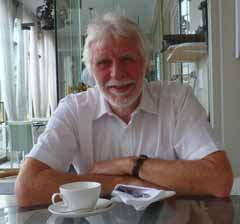 Colin Vose, Quintiles Ltd, United Kingdom
Colin Vose, Quintiles Ltd, United Kingdom
Dr. Vose trained in Chemistry before gaining his PhD in chemical carcinogenesis from the Imperial Cancer Research Fund and London University.
He retired from Quintiles in 2014 as a Vice-President in Global Strategic Development within the Centre for Integrated Drug Development after some 15 years with the company and is now an independent consultant.
His roles at Quintiles involved provision of strategic development and due diligence expertise for Pharma and Biotech companies and potential investors, across most therapeutic areas and regional boundaries on NCEs, biologics, and some vaccine and stem cell projects. He also provided scientific and technical guidance to non-clinical, Phase I and early exploratory development programmes to such companies.
Some 25 years experience in Pharma R and D with Searle, Rhone-Poulenc and Hoechst Marion Roussel leading teams of scientists providing DMPK, Biopharmaceutic and Pharmaceutical Sciences support to global drug discovery candidate selection, integrated exploratory development, clinical development and registration programmes. Managed restructuring of Hoechst Marion Roussel UK non-clinical Drug Development operations during 1993-98.
Some 60 peer reviewed publications and 60 presentations at international conferences.
Visiting lecturer/tutor on Industry and University courses on Drug R and D, DMPK, Integrated Drug Development.
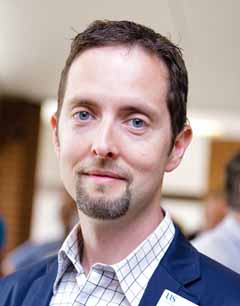 Simon Ward, University of Sussex, United Kingdom
Simon Ward, University of Sussex, United Kingdom
Simon Ward has an MA in Natural Sciences and PhD in synthetic organic chemistry from Cambridge University, UK. He has wide-ranging experience of drug discovery in both large and small companies (BioCrea GmbH, GlaxoSmithKline, Knoll Pharmaceuticals, Vernalis, Chiroscience) and academia and specialist experience of discovering and developing drugs for central nervous system indications. He has led multidisciplinary project teams & medicinal chemistry groups from target identification, through to early clinical studies, delivering multiple clinical development candidates across indications. Simon is a Fellow of the Royal Society of Chemistry. Simon is currently Professor of Medicinal Chemistry at the University of Sussex, UK and Director of the Sussex Drug Discovery Group which he established within the University of Sussex in 2010.
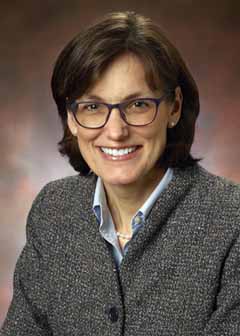 Ann E. Weber, Kallyope Inc, United States
Ann E. Weber, Kallyope Inc, United States
Ann E. Weber, Ph.D., is an independent consultant to biotech and pharma. She retired in November 2015 from Merck & Co, where she was most recently Vice President, Lead Optimization Chemistry at the Kenilworth, NJ and Boston, MA sites of Merck Research Laboratories (MRL). In this role, she was responsible for the discovery of innovative therapeutic agents across disease areas. She joined MRL in Rahway, NJ as a Senior Research Chemist in 1987.
Dr. Weber’s research interests include the design and synthesis of ligands for G-protein coupled receptors, ion channels and enzymes. Her work has led to over 40 development candidates, including JANUVIA® (sitagliptin), a treatment for patients with Type 2 diabetes (T2DM), JANUMET®, a fixed dose combination of sitagliptin and metformin, and MARIZEV® (omarigliptin), a once-weekly treatment for T2DM that was approved in Japan in September 2015. One additional drug candidate, vibegron for the treatment of overactive bladder, is in late stage clinical trials.
Dr. Weber is the author or co-author of over 80 publications. She is co-inventor on over 35 issued US patents. Her awards include the Robert M. Scarborough Award for Excellence in Medicinal Chemistry (ACS), the Heroes of Chemistry Award (ACS), the Discoverer's Award (PhRMA), and a Directors’ Award, the highest honor that Merck confers on its employees.
Before joining Merck, Dr. Weber obtained her B.S. degree in chemistry summa cum laude from the University of Notre Dame. She earned her Ph.D. degree from Harvard University, studying synthetic organic chemistry in the laboratories of Professor David A. Evans.
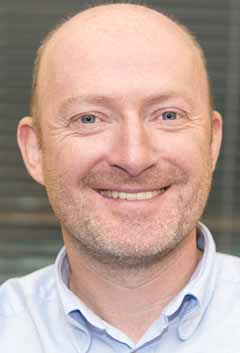 Scott Webster, University of Edinburgh, United Kingdom
Scott Webster, University of Edinburgh, United Kingdom
Dr Scott Webster is Reader in Drug Discovery and Director of the Drug Discovery Core at the University of Edinburgh, College of Medicine and Veterinary Medicine. He has experience of managing programmes with both academic and industrial components across a variety of disease indications. He directed a successful Wellcome Trust SDD-funded programme, which delivered a clinical candidate in Phase 2 trials in Alzheimer’s disease, and is co-investigator on a joint University of Edinburgh/GSK DPAc collaboration to develop new medicines for the treatment of acute pancreatitis, which has recently delivered a development candidate. Current projects also include a joint collaboration with Sanofi/Genzyme to discover new medicines for the treatment of Multiple Sclerosis. His previous roles include Head of Enzymology at PanTherix Ltd, where he was responsible for antimicrobial drug discovery programmes employing structure-based design. He has broad experience including medicinal chemistry, protein biochemistry, pharmacology and in vitro screening.





















